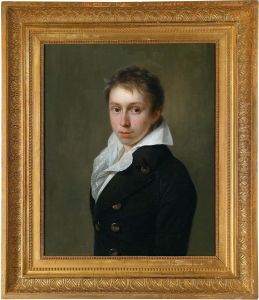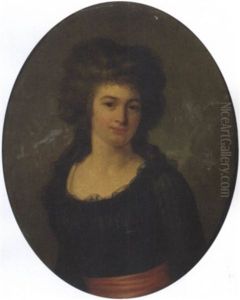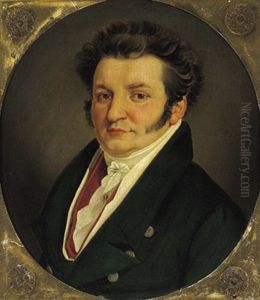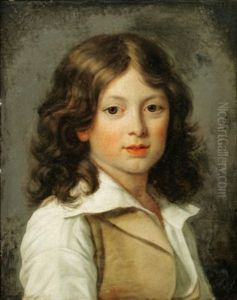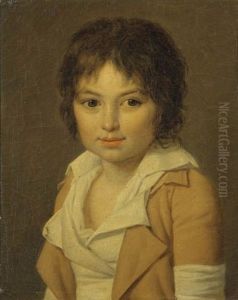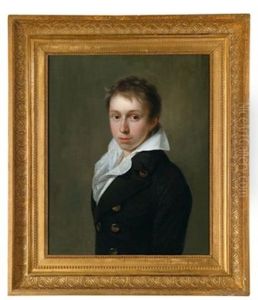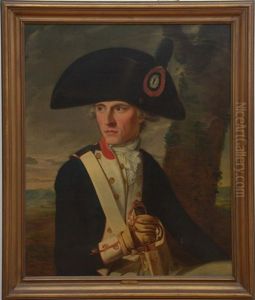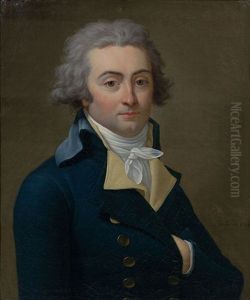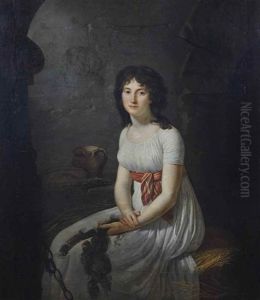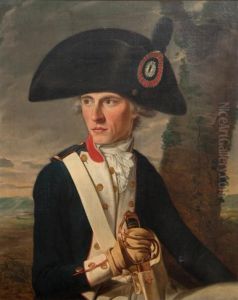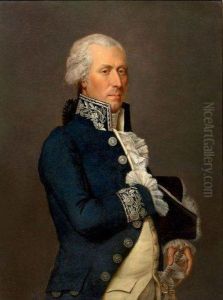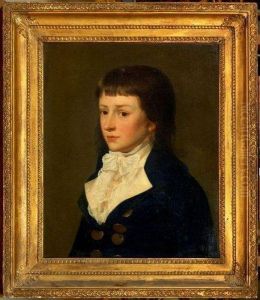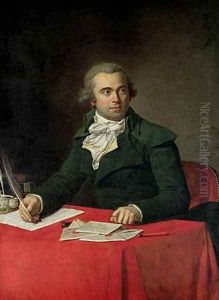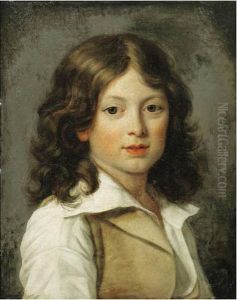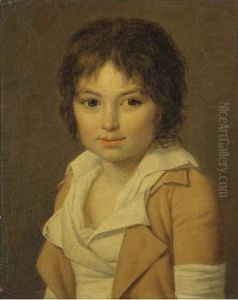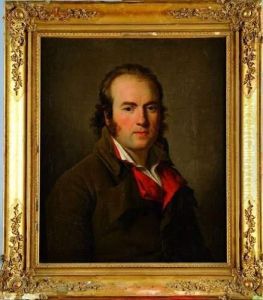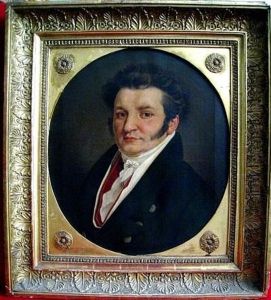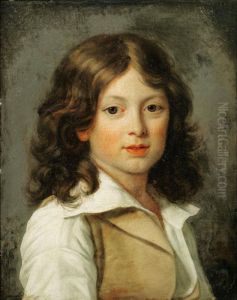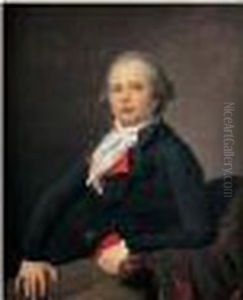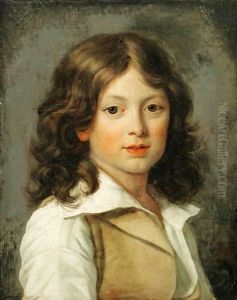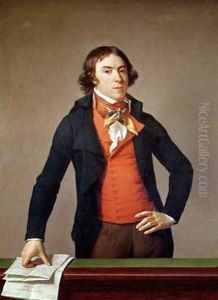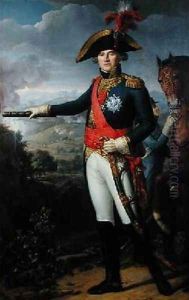Jean Louis Laneuville Paintings
Jean Louis Laneuville, born in 1748, was a French painter and engraver primarily known for his portraits, which vividly capture the political and intellectual figures of the French Revolution. Unlike many artists of his time who were swept away by the romanticized grandeur of historical and mythological themes, Laneuville focused on depicting the realism of contemporary life, particularly the characters who played significant roles during the tumultuous years of the Revolution.
Laneuville's early life and training are not extensively documented, but it is known that he was active in Paris by the late 18th century, a period that was marked by great social and political upheaval. His work gained prominence for its intimate portrayal of revolutionaries, often capturing them in moments of intense thought or debate, which was a departure from the idealized representations common in the art of the Ancien Régime. This approach not only endeared him to the revolutionary circles but also provided a historical lens through which the personalities of this critical period could be viewed.
Throughout his career, Laneuville exhibited at the Paris Salon, an official art exhibition of the Académie des Beaux-Arts in Paris. His portraits were celebrated for their detail, psychological depth, and the skillful use of light and shadow, which brought out the inner lives of his subjects. Among his notable works are portraits of Maximilien Robespierre and Jean-Paul Marat, key figures of the French Revolution, which remain significant for their historical value as well as their artistic merit.
Despite the political shifts and the rise of Napoleon Bonaparte, Laneuville managed to navigate the changing political landscape, although his prominence as a portraitist of the Revolution did not translate into the same level of success in the Napoleonic era and the Restoration period that followed. Nevertheless, his works continued to be appreciated by connoisseurs and collectors for their historical significance and artistic quality.
Jean Louis Laneuville passed away in 1826. Today, his portraits are recognized not just as works of art but as invaluable historical documents that offer insight into the personalities and events of the French Revolution. His contribution to French art and history continues to be studied and appreciated, highlighting his unique position as both an observer and chronicler of one of the most pivotal periods in French history.
